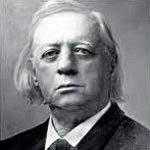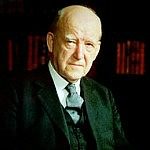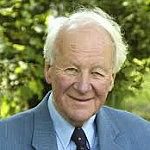Quotes about Philosophy
The philosophy of one century is the common sense of the next.
A man sits in front of a bad television program and doesn’t know that he is bored; he joins the rat race of commerce, where personal worth is measured in terms of market values, and is not aware of his anxiety. Ulcers speak louder than words. Theologians and philosophers have been saying for a century that God is dead, but what we confront now is the possibility that "man is dead," transformed into a thing, a producer, a consumer, an idolater of other things.
Philosophy has always been the cause of the church going astray, for philosophy means, ultimately, a trusting to human reason and human understanding. The philosopher wants to encompass all truth; he wants to categorize and explain everything, and that is why…(philosophy is) diametrically opposed to the preaching of the gospel.
Philosophy claims to be true but is utterly deceitful, like a fisherman who captures his unwitting prey by concealing a deadly hook within a tasty morsel of food. The fish thinks it’s getting a meal but becomes one instead. Similarly, those who embrace a human philosophy about God or man might think they’re getting truth, but instead they get empty deception, which can lead to eternal damnation.
The Quest for Something More from Our Sufficiency in Christ, 1991, Crossway Books, a division of Good News Publishers, Wheaton Illinois 60187, www.crosswaybooks.org. p. 172-173. Get this book!
The one most valuable lesson humanity ought to have learned from philosophy is that it is impossible to make sense of Truth without acknowledging God as the necessary starting point.
A Christian has no need of human philosophy. It is unnecessary and, more often than not, misleading. Where it happens to be right it will agree with Scripture, and is therefore unnecessary. Where it is wrong it will disagree with Scripture, and is therefore misleading. It has nothing necessary or reliable to offer. By nature it is speculation, based on man’s limited and fallible insights and understanding. It is always unreliable and always divisive.
If we want answers to what life is all about – answers about where we came from, where we are going, and why we are here, about what is right and what is wrong – then human learning cannot help us. If we want to know the ultimate meaning and purpose of human life, and the source of happiness, joy, fulfillment, and peace, we have to look beyond even what the best human minds can discover. Man’s attempts to find such answers on his own are doomed to fail. He does not have the resources even to find the answers about himself, much less about God. In regard to the most important truths – those about human nature, sin, God, morality and ethics, the spirit world, the transformation and future of human life – philosophy is bankrupt.
Whenever a Christian converses with a non-Christian about the truth of the faith, every request of the non-Christian for the proof of Christianity should be met with an equally serious request of proof for the non-Christian’s philosophy of life. Otherwise we get the false impression that the Christian worldview is tentative and uncertain, while the more secular worldviews are secure and sure, standing above the need to give a philosophical and historical accounting of themselves. But that is not the case. Many people who demand that Christians produce proof of our claims do not make the same demand upon themselves.
Desiring God, Bethlehem Baptist Church, 1996, p. 273, used by permission, www.desiringGOD.org. Get this book!
Every powerful movement has had its philosophy which has gripped the mind, fired the imagination and captured the devotion of its adherents.





